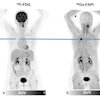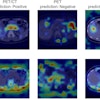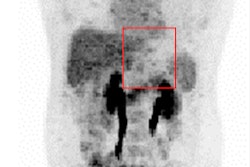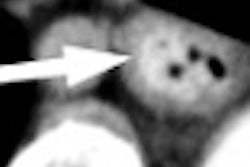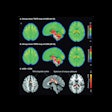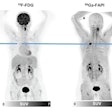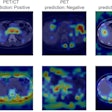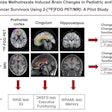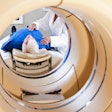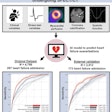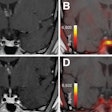Initial staging of esophageal cancer with PET/CT can help physicians determine whether curative or palliative treatment is the best management plan for patients, according to a study in the June issue of the Journal of Nuclear Medicine (Vol. 63:6, pp. 864-871).
The prospective study by Australian researchers from the Centre for Cancer Imaging and Peter MacCallum Cancer Centre in Melbourne found that F-18 FDG PET/CT changed the staging for 59 of 139 patients (42%) and the management plan for 47 patients (34%).
Not only does PET/CT change management of esophageal cancer patients, but does so correctly in almost all cases, noted lead study author Dr. Thomas Barber.
The study followed 139 patients with newly diagnosed esophageal cancer between July 2002 and June 2005. Each of the patients underwent conventional staging by CT and/or endoscopic ultrasound, followed by PET/CT. When staging information from the conventional investigations differed from the PET/CT information, results were validated by pathologic/intraoperative findings or serial imaging and clinical follow-up. The impact on patient management plans was measured by comparing pre-PET/CT plans with post-PET/CT plans.
Of the 47 patients who had a change in their management plan, 31 had their imaging results validated, and PET/CT correctly changed management in 26 cases (84%).
Based on the results, Barber and colleagues recommended the PET/CT technique be incorporated into routine clinical practice.


